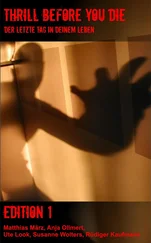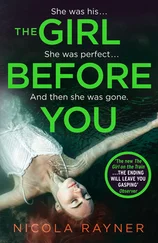Keenan placed the rifle down gently on his credenza. Even though they’d been using dummy ammunition, the long weapon frightened him.
“Well, I think this is all just messy enough to give FERAL some ink,” Paige said. “Especially since there is most definitely no indicator on the weapon telling you when there is or is not a bullet in the chamber.”
“And there’s that girl,” Grampbell added. “I’m no lawyer, but I’ve seen enough of these cases to know it helps the plaintiff when there’s a child involved.”
Keenan thought about this, and then he thought of all those hunted deer. All those Bambis with their big dark eyes. Those animals hadn’t a chance against an exploding projectile rocketed after them with-what was that number?-fifty thousand pounds of pressure per square inch. No animal did. Just look at what a bullet did to the shoulder of their communications director. He made a pyramid with the fingers on both hands, and as he spoke he hoped his words didn’t sound as oddly chilly to Grampbell and Paige as they did to him: “But since the lawsuit will go to the heart of one of Adirondack’s best-selling rifles, I believe we can take comfort in the reality that, in this case, they will not settle right away. Which is, of course, precisely what we want.”
The mountain man looked puzzled for a moment. He was even making a small silent oh with his mouth beneath that great ruddy beard. But then Grampbell turned toward Paige Sutherland-and she looked downright petite beside him-and he stretched the seams of his blazer with one massive shrug.
ONLY WHEN CHARLOTTE had mastered the ability to drop the final g’s in her words-eatin’ and drinkin’ and goin’-did she start trying to spit out the t’s that marked the end of some words or soften the vowels that resided in the midst of still others. Sometimes she feared that she sounded more like a Cockney aunt from a Monty Python sketch than a spoiled but unhappy little girl from the colonial aristocracy, but the drama teacher told her-in a stab at a British accent herself-that the accent was comin’ along just fine.
She was running lines now with her father on the couch in the living room. He was holding a copy of the script open with his left hand, pressing it flat against his knees at an angle that allowed them both to see the dialogue on the page. Occasionally he would lean forward to hold the pages open with the weight of his sling-enclosed forearm and use his functional left hand to reach for a toothpick pretzel in the small bowl on the end table beside them.
“Are you goin’ to be my father now?” she asked, closing her eyes after glancing quickly at Mary’s line. This was how she found it easiest to learn her part: She would read the dialogue once, repeat the words in her mind, and then say them aloud with just a hint of an accent.
“I’m your guardian. But I’m a poor one for any child,” her dad answered, replicating impressively in her opinion the stoic voice of the orphan girl’s tortured uncle. “I offer you my deepest sympathies on your arrival.”
This time she didn’t have to lean over to glance at the script because the next line-the very last in the scene-was one of Mary’s best. “Did my mother have any other family?” she asked, emphasizing other exactly the way the young actor did on the CD she had from the original Broadway production.
Her father removed his fingers and let the script fall shut. “Very nicely done,” he said. “You’re good.”
She was flattered, but reflexively she rolled her eyes. “I’m okay,” she said.
“Your grandmother-my mom-used to have an excellent ear for accents. It was mostly a party trick, but sometimes when I was a little kid she’d leave me howling with laughter.”
“But she never acted, right?”
“Just school plays.”
“She never tried anything more?”
“I doubt it.”
“Why?”
He nodded, apparently pondering his response. Finally, he said, “I’ve always been sorry you were so young when my mother died. You would have liked her.”
“I have a couple memories of her. Once we went looking for seashells together, right? I was three, maybe. It was a windy day and the waves seemed humongous-but I’m sure they weren’t.”
“No. They weren’t.”
“And didn’t she finger-paint with me one time? On newspapers on a glass table?”
“She did.”
“But maybe I just remember that because you or Mom told me about it.”
“Maybe.”
“So, why do you think she never tried to become an actress?”
“Oh, I don’t know if she had the talent. Or the discipline. Or the desire. I’m not sure she ever figured out precisely what she wanted.”
“That’s so sad.”
“She had her moments. She adored you,” he murmured softly. Then, almost abruptly, as if waking up from a trance, he said, “Now, your mother and I have been thinking about your birthday. I know it was a couple of weeks ago, but we didn’t do a whole lot and that was wrong. A birthday is still a birthday.”
“It was fine, really. I didn’t mind that we didn’t have a party,” she said, once more trying to sound like Mary Lennox. She decided she was unhappy with the way she had just rolled the r in really (too Scottish, she thought) but immensely satisfied with the crisp way she had enunciated party. “Besides, I already have what I want.” There: A girl such as Mary Lennox would most assuredly have said have instead of got.
“This part?”
“Yes, Father,” she replied. Father. Now that was a nice British touch. She had never called her dad Father before, and she liked how it sounded.
“Would you like a party now? I know it’s late, but we could still have one.”
Next Tuesday was that press conference. That meant, she presumed, that her father would be crazed this coming weekend. Almost certainly he would not be around. “Well, anything we do should wait until after the press conference. So if we have a party or go someplace special-and I’m not saying we should-I’d understand if we did it the following weekend. Or even next month. Okay?”
“Sweetheart, the press conference is a completely separate event from your birthday. And I think it’s under control. At this point, it doesn’t look like I’ll have to do a whole lot more than show up. And so I think I can manage both-a party and my responsibilities at the office,” he said, and as he spoke he accidentally knocked the ceramic bowl of pretzels onto the floor with his good arm.
The floor was carpeted and so the dish survived its plummet intact, but the pretzels scattered everywhere like small toasted Pick-up Sticks. She watched her father reflexively lean over to start gathering them up, and she glimpsed the wince he was able neither to conceal nor control. And so instantly she knelt down and started sweeping them up with her hands, telling her dad to stay put, that she could do this.
Much to her surprise, he did. “Fair enough,” he said with a sigh, and he fell back gingerly against the cushions.
When she had recovered the pretzels she returned to her spot on the couch, wondering if he would say something about his clumsiness or his helplessness or his simple inability to pick pretzels up off the floor. She wondered if he would be angry. Quickly she put the cap back on the yellow highlighter they’d been using to mark the script, because she knew how difficult it would be for him with one hand.
“So: Your birthday,” he continued instead, as if nothing had happened. “What would make you happy?”
The short answer was easy: Her father to have a functioning right arm once again. To go back in time to July. To no longer live with the constant, only barely suppressed awareness of what she had done.
This wasn’t an option, however, it wasn’t anything her father could give her. It wasn’t anything her father was even contemplating with the question. And so she thought for a moment, wondering exactly what she did want. And she had the sense as she sat in the living room and learned her lines with her… father… a father who was at once strangely placid and uncharacteristically present… that right now she was indeed (and she heard Mary Lennox using precisely these words) about as content as a girl could be, given her current circumstances.
Читать дальше











